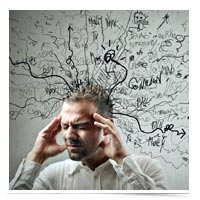“Neither a man nor a crowd nor a nation can be trusted to act humanely or to think sanely under the influence of a great fear.”

Now more than ever we face a constant feed of the world’s trauma. Often what we receive isn’t even yet news– it’s the breaking, real-time, unfiltered stream of Tweets, Periscope videos, Instagram photos, and Facebook shares. Sometimes this stream reveals injustice which might otherwise go unexposed. Sometimes this stream exposes us to intolerable levels of violence and unrest. We’re often provoked to respond before we’ve even had time to begin processing the event.
There’s a tendency to engage with this media circus under the guise of keeping up with current events in order to be an informed citizen, but I would argue we’re at a point where we need to take more responsibility for our attention. An obsession with the next breaking tragedy can have an adverse effect not only on our ability to focus on important work and relationships, but it can also be harmful to our health.
While I’m not advocating for disengagement from important social issues or the democratic process, I would urge you to look at your media sources and ask yourself whether they are responsible for creating an atmosphere of constant anxiety or fear. If so, do you find these events dominating your thoughts, or preventing you from functioning well day-to-day? Can you be an effective advisor to your clients in this state of mind?
An important part of caring for your clients is self-care. Try and recognize when you’re feeling overloaded by the fear, uncertainty, and doubt feeds. Despite “water-cooler pressure” to chat about the latest travesty dominating the news cycle, there’s nothing irresponsible about taking a break from social media, limiting your news sources to less-immediate, more considered outlets, or refocusing your attention on subjects related specifically to your personal or professional interests.
Don’t feel compelled to feed your fears.


